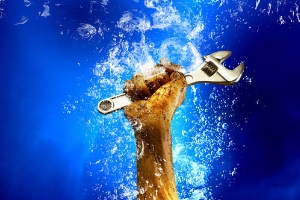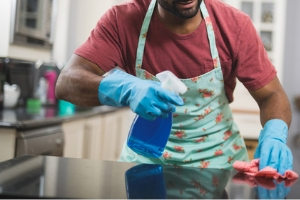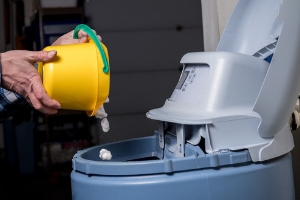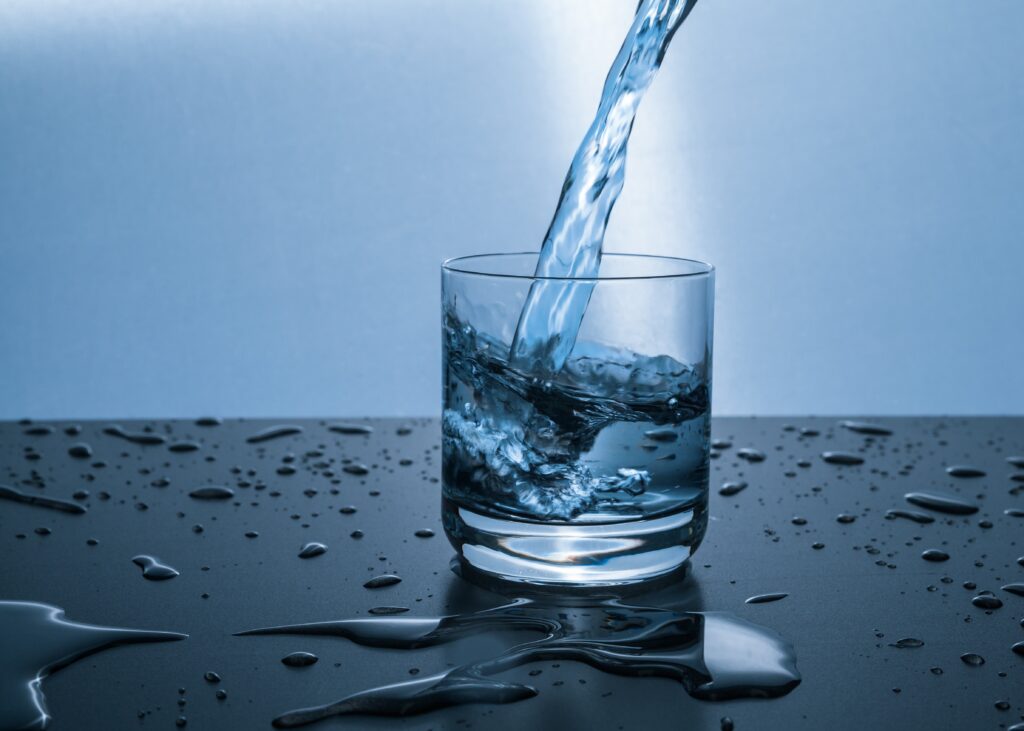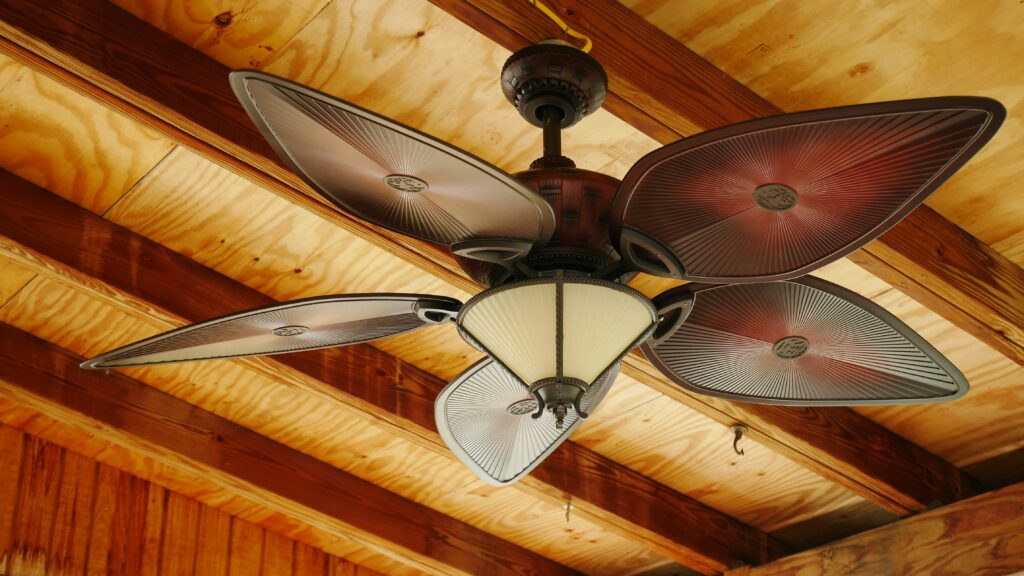You vs. Hard Water Spots: the Secret to Winning the Battle
If you have hard water, you could find yourself in a constant battle to clean white spots off your surfaces. That can be frustrating, and what’s even more frustrating is the fact that most plumbing companies won’t tell you that they know exactly how you can win the war against dirty water once and for all. You see, many plumbing companies think that their business will suffer if they tell you how to help yourself, so they don’t!
At Korte Does It All, we don’t believe in keeping helpful information from our customers just to promote our own services. Read on to learn our industry secrets for cleaning hard water stains and selecting the right water softener.
Know Your Enemy: Hard Water
Hard water is a term that is used to describe water that has a high content of magnesium and calcium. Why is having hard water in your home a problem?
Hard water can adversely impact everything in your home that involves the use of water such as your laundry, dishes, hair, skin, water heater, coffee maker, faucets, tiles, shower, and other surfaces you may clean with water.
Know Your Secret Weapon: Cleaning Stains
The secret to cleaning hard water stains is that you don’t need expensive cleaning agents or professional services to do it! You can get rid of hard water spots with just a little bit of vinegar and water, and eliminate scale buildup on faucets with fresh lemon juice.
To remove most hard water stains, mix one part vinegar and one part water in a spray bottle and spray the mixture onto the stains. Give it a couple of minutes to soak, then rinse and wipe dry.
If this method doesn’t work on tougher stains, you can also mix vinegar and baking soda into a paste, spread it over stains, and scrub it out after several minutes. Then rinse and wipe dry. For mineral deposits on faucets, you can spray lemon juice directly onto the scale and wipe clean after a few minutes. Easy!
Know Your Way Out: Water Softeners
There are two general ways water softeners remove calcium and magnesium from your water: with salt, and without salt. A salt-based ion-exchanger essentially removes hard minerals in your water by replacing the magnesium and calcium ions in the water with sodium ions, released from resin beads.
Next, the hard minerals are flushed out of the tank, and the sodium ions cling back onto the resin beads. These perform better than salt-free softeners but require more maintenance. In a salt-free water softener, the calcium and magnesium aren’t removed from your water.
Instead, they are transformed so that they don’t cling to surfaces and leave those white spots anymore. They are less expensive, but they don’t soften water so much as they treat it. Make the choice today to end this fight with hard water stains on your clothing and surfaces once and for all!
If you don’t make a move to soften your water, you’ll just continue fighting the same battle over and over again! Help out your friends and loved ones who are fighting the same fight against hard water in their homes by sharing this article with them.
Recent Posts
Recent Posts
Request Service
Fill out the form below, and we’ll contact you soon to schedule your home service appointment.
Request Service


Enroll in Our Peace of Mind Agreement
Routine Heating & Cooling
Maintenance Guaranteed
- Two system checks each year
- Priority service
- No overtime charges
- Product and service discounts






